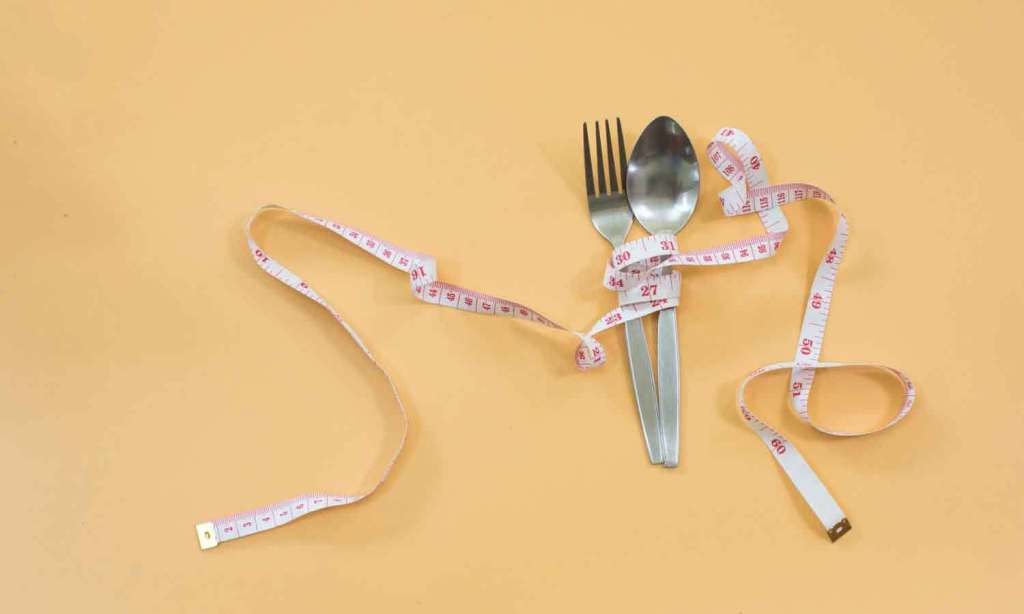No matter your preferred publication or corner of the internet, it’s likely your eating habits have been called “overindulgent” today. That’s because CSIRO, the country’s national science agency, has released a “Junk Food Analyser” which…analyses your consumption of junk food — guess the one thing going for it is that it says what it does on the box.
Launching just in time for those of us who overindulged over Easter, says the press release, it tells us we’re eating a “whopping” amount of discretionary food — the equivalent of 20 small, solid chocolate Easter eggs daily. See the theme here?
Apparently, the analyser helps Australians have their cake and eat it too…which, um, most of us already did prior. Whom among us would waste a perfectly good cake? And those who work in the industry aren’t exactly impressed with the announcement.
One counsellor, who is also a Certified Body Trust Provider® at Make Space Counselling, confesses that her first response was a bit of an eye-roll. Rachel Roberts, the aforementioned counsellor, said “Another tool to help us maintain fear around food? Surely we have enough already.”
Dietician and nutritionist, Susie Burrel, says a tool like this that can help people become more aware “can be useful” but says the tool doesn’t give useful strategies on ways to change these food habits. In her words? “As such [the Junk Food Analyser] is perhaps a data collection tool rather than a tool built to help people.”
Amber Rules, director and founder of Rough Patch, accuses CSIRO of completely missing the mark when it comes to the name. Why? “Food is food, and calling it ‘junk’ is erroneous, unhelpful and stigmatising (and classist, in my opinion.)” Accredited practising dietitian, and director of GlowGroup, Jessica Tilbrook, echoes Rules’ sentiments.
They’re not the only ones who find fault with the word ‘junk’.
Roberts agrees with the point about the word being stigmatising, saying that the word on its own means it’s “of poor quality, it’s trash, it has little significance.” And by applying that word to food, “we’re undermining their real role in providing us with energy, variety, and novelty.”
And that’s not taking into account the judgemental aspect of the word. “If we say someone ‘just eats junk’,” explains Roberts, “We’re building assumptions about their quality of life, and their whole being as a person.” Tilbrook says that clinically, they avoid using the phrase ‘junk food’ as it demonises certain foods.
Burrell finds fault in the food being classified as junk food within the tool, as there’s “a big difference in the range of foods described.” She also emphasises that the foods targeted are consumed in different settings and environments and that the way it’s done so in the tool “ignores the factor [of availability] as a key influence over consumption patterns.”
Issue has also been taken with the tool itself, not just the phrasing. Like Tilbrook mentioned, not only does it demonise food, it can result in “a restrictive or deprivation mindset which can result in a restrict-binge eating pattern.” Roberts agrees, and provides several studies showing how self-monitoring food intake are adversely related to the risk of developing eating orders – and the severity of them.
She also points out that, ironically, tools like these “Contribute to a culture-wide stigmatisation of body size and certain foods” that very likely goes against what the CSIRO was actually aiming — improving the health of Australians.
As for what steps people can actually take if they’re worried about food consumption? Burrell recommends to “work on building better habits and changing the environment to make healthy choices easier.” But she doesn’t recommend doing it on her own — she says to work with a dietitian or psychologist, “The professionals equipped to support these changes.”
Reaching out to a dietitian is also a suggestion of Tilbrook’s, if you’re “looking to assess and unpack your current nutritional intake and/or relationship with food and body.” And don’t be scared of the word diet in there, working with “a dietitian who focuses on health outcomes, rather than just shape or size, has shown to be very supportive.”
Specifically? “Look for a Dietitian who is HAES (Health at Every Sized) Aligned, or utilises a Non-Diet Approach.” Roberts echoes this approach, as HAES dietitians “actively work against weight stigma.”
Read more stories from The Latch and subscribe to our email newsletter.







